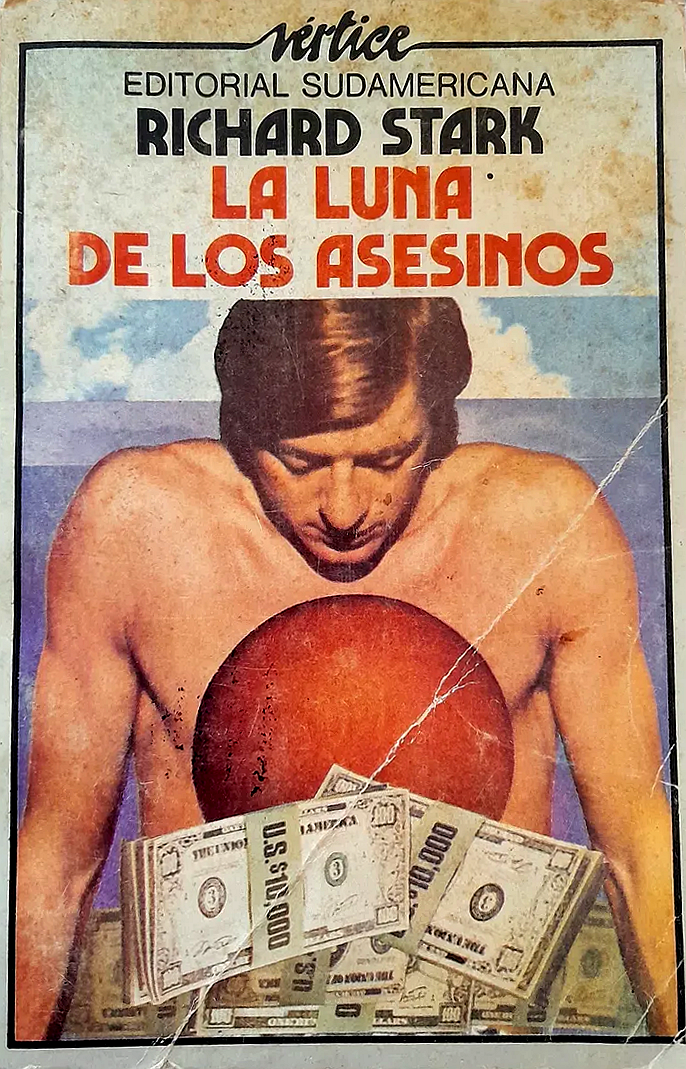tough business:
a parker site
Grofield's Gaze | Guillermo Piro
 Author, journalist, and translator Guillermo Piro recently wrote a very insightful piece on Butcher's Moon for Perfil, where he's currently serving as culture editor. Perceptive yet fond, Guillermo engages with Stark's text on its own terms and elaborates on the compelling dynamic that constitutes the heart of the novel.
Author, journalist, and translator Guillermo Piro recently wrote a very insightful piece on Butcher's Moon for Perfil, where he's currently serving as culture editor. Perceptive yet fond, Guillermo engages with Stark's text on its own terms and elaborates on the compelling dynamic that constitutes the heart of the novel.
Guillermo kindly granted Tough Business permission to share the article, you'll find our English translation below.
Grofield's Gaze
The Killers’ Moon is a Richard Stark novel that I think I've mentioned far too often. I've given it to all my loved ones, I've read it a dozen times (every time I travel, although I can't explain why), and I can even recite passages from memory. It's not unusual for someone to recite poems from memory, but passages from a crime novel... that says something. I don't quite know what, but it says something. I think The Killers’ Moon by Richard Stark is the best crime novel to date.
It was actually supposed to be called The Butchers' Moon, a title that was much closer to the original, but Enrique Pezzoni, editor at Sudamericana in 1978, thought that the image the butcher conjured up in our minds was too far removed from the image of the butcher that came to the mind of an American. That's something I would've loved to discuss with Pezzoni, but that even the novel's translator, César Aira, didn't bother to clarify. After all, the characters in the novel are all murderers. Except for Grofield, a peculiar character -- a theater actor in need of money, who strays from the gangster ideal and only occasionally approaches it, only to drift away again.
No one could claim Grofield is a friend of Parker's, the main character, but that's only because Parker doesn't have any friends (only coworkers). But Grofield awakens a certain affinity in him, certain ties that we may somewhat carelessly call affectionate: Grofield is too intelligent, too loyal, too full of life not to be loved.
At one point in the novel, Grofield and Parker are surprised by a gang of mobsters who want to get rid of them; they shoot and knock Grofield down. The first words that come to Parker’s mind leave the reader perplexed: “Grofield’s finished,” he says out loud, to himself. But Grofield isn’t dead, he’s just badly wounded. Very badly wounded, convalescing in a hospital bed in one of the rooms of a mobster’s mansion. And to get Parker to show his face, they send him a small box containing a phalanx from Grofield's right pinky finger. And that infuriates Parker. And when Parker is furious, he kills: he's a murderer.
But that’s not what I want to talk about. I want to talk about a minor scene that appears towards the end of the book. Parker, aided by his "colleagues" whom he summoned to a small, unoccupied apartment, manages to pull off three simultaneous heists that result in astronomical losses for the mafia, filling everyone's pockets except Parker's. What Parker wants isn’t a share of the loot, but rather their help rescuing Grofield. This plea leads to a short series of moral disquisitions (that's what crime novels are about, discovering how this strange morality works), which concludes with a firm monologue from Parker (very long for his oratorical habits) in which he says: "If Grofield had been killed, it wouldn't be anyone’s problem. If Grofield had been wounded, it would be his problem. But if Grofield is recovering and they intend to send me a finger every day, that's my problem."
The syllogisms of that morality, then, are established, and everyone decides to help with the rescue. One of the most terrifying scenes I've ever seen isn’t actually seen, I imagined it: a city that Parker and his companions plunged into complete darkness, and four cars with their headlights on slowly making their way through it towards where Grofield lies unconscious. What follows is difficult to describe: there's commotion, noise. Parker and his companions fight their way through, manage to kill everyone, and take Grofield away. And that's the moment that moves me: Grofield regains consciousness, discovers he's inside an ambulance, and tries to recognize those around him. He looks around, and doesn't recognize anyone. But he knows Parker is nearby, because there’s nowhere else he could be, and that's enough for him to relax and fall back asleep. The Killers' Moon ends with that tender scene.